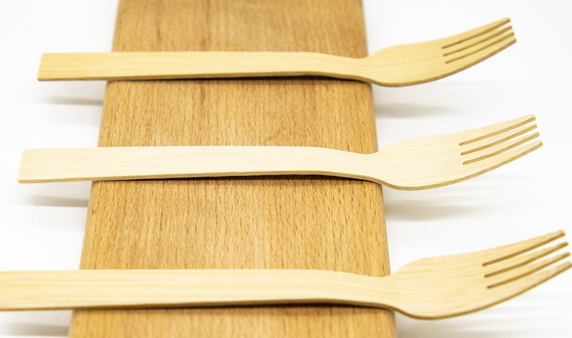Performance characteristics of small wooden forks
Instead of plastic spoons and forks, you might want to try small wooden forks. They're an eco-friendly alternative to plastic, and are perfect for picnics, events, and parties. You can dress them up with washi tape or food-safe paint. These are a great way to make a lasting impression on your guests. They are also fun to decorate and look cute in your kitchen! The possibilities are endless.

Disposable wooden utensils are an eco-friendly alternative to plastic
While the production of plastic forks and spoons releases numerous byproducts, wood has a lower impact on the environment. The global warming potential (GWP) of wooden utensils is between -45 and -12 compared to the same figures for plastic. In addition, the natural material is a carbon sink that absorbs CO2 from the atmosphere. The lower GWP of wooden utensils means they're more environmentally sustainable than their plastic counterparts.
Biodegradable plastic cutlery is another option. Bioplastic utensils are compostable, but their carbon footprint is still significant. Biodegradable plastic requires industrial composting facilities to decompose. That means that most municipal compost services cannot process it. However, bamboo-based utensils are compostable and do not require a special facility to break down.
Wooden utensils are fully compostable, which means they decompose within 90 days. Compostable wooden utensils can be composted at home or in a commercial composting facility. Alternatively, they can be sent to landfills, where they decompose over time. Depending on the size and density of the landfill, this process can take anywhere from weeks to decades.
As more Americans are becoming aware of the effects of single-use plastics, they are searching for eco-friendly alternatives to plastic utensils. In the long run, reducing plastic utensil consumption will reduce the amount of plastic used, which will reduce pollution. A robust supply chain will enable businesses to produce wooden utensils at cost-effective prices. This will help them gain market share among environmentally-conscious consumers and project an environmentally-conscious image.
If you're worried about the environmental impact of plastic utensils, consider buying bamboo utensils instead. They're biodegradable and compostable and won't scratch pots or react to acidic foods. These eco-friendly utensils also feel great in your hand and are heat and splinter-free. They're also great for children, making them an ideal eco-friendly alternative to plastic utensils.
They are durable
The wood in small wooden forks is strong and durable. Small wooden forks can be reused for many uses. This type of cutlery is made of FSC certified birch, making it a great choice for everyday use. The sustainable materials in small wooden forks are also great for the environment, as they degrade naturally into organic materials. These wooden forks are also convenient, compostable, and do not leave any visible residue.
When choosing cutlery for picnics or outdoor events, look for durable and small wooden forks. Wooden utensils are environmentally friendly and will last for many years. Small wooden forks are a great choice because they are made of solid birch wood harvested from sustainable forests. These pieces of cutlery are great for outdoor barbecues, picnics, and courtyard picnics. They will be comfortable and durable, as well as safe for your little one.
They are multi-purpose
A small wooden fork can serve many purposes and is multi-purpose. These forks were originally used in European courts in the 14th century. Finger stains were a major problem because the foods of that time were so exotic. It was hard to clean your fingers after eating them. Eventually, forks were invented and used in many European courts. Today, you can purchase wood dessert forks.
One of the benefits of wooden utensils is that they biodegrade. Plastic forks can take thousands of years to decompose, and wood is a sustainable, biodegradable material. Wooden forks are compostable and biodegradable, and are a wonderful alternative to plastic. Buying wooden utensils is not only environmentally friendly, but also gives restaurants and other venues an exclusive feel.
Forks have become an essential part of most modern dining habits. They can be used for many purposes, including for eating and serving food. In the 17th century, travelers from Europe started spreading these tools around the world. By the 18th century, they had become common and commonplace in Europe, although Northern American colonists refused to use them until the 19th century. England and Germany were the first to create multi-tinned forks.
They are lightweight
There are several benefits of using small wooden forks. They are inexpensive, durable, and eco-friendly. These forks are lightweight and do not have a wood taste or smell, so they are environmentally friendly. You can throw them away after each use, making them a great choice for outdoor dining, picnics, and sporting events. Some forks have wooden handles, so you can keep them in your pocket when not in use.
If you want to use small wooden forks, choose ones that are made from solid birch wood harvested from F.S.C. certified forests. These are lightweight and durable, which makes them the perfect eco-friendly alternative to plastic. They are also resistant to breakage even in areas with high heat. However, they aren't as sturdy as plastic forks. If you're concerned about sustainability, you should use wooden forks instead of plastic ones.







